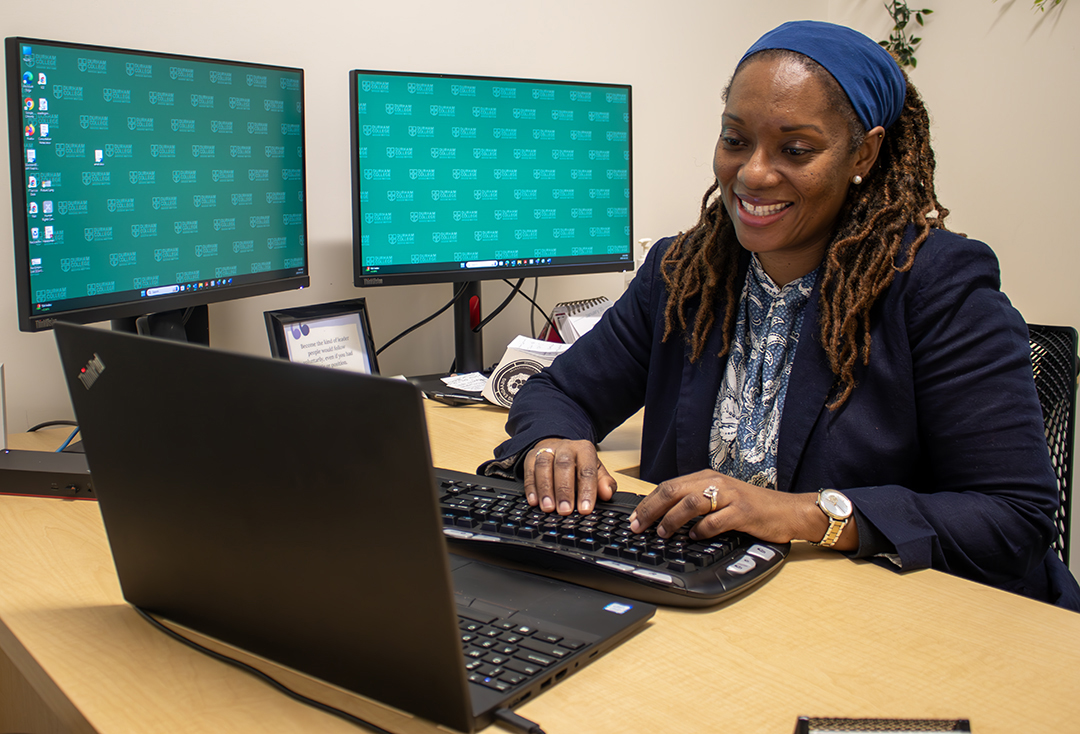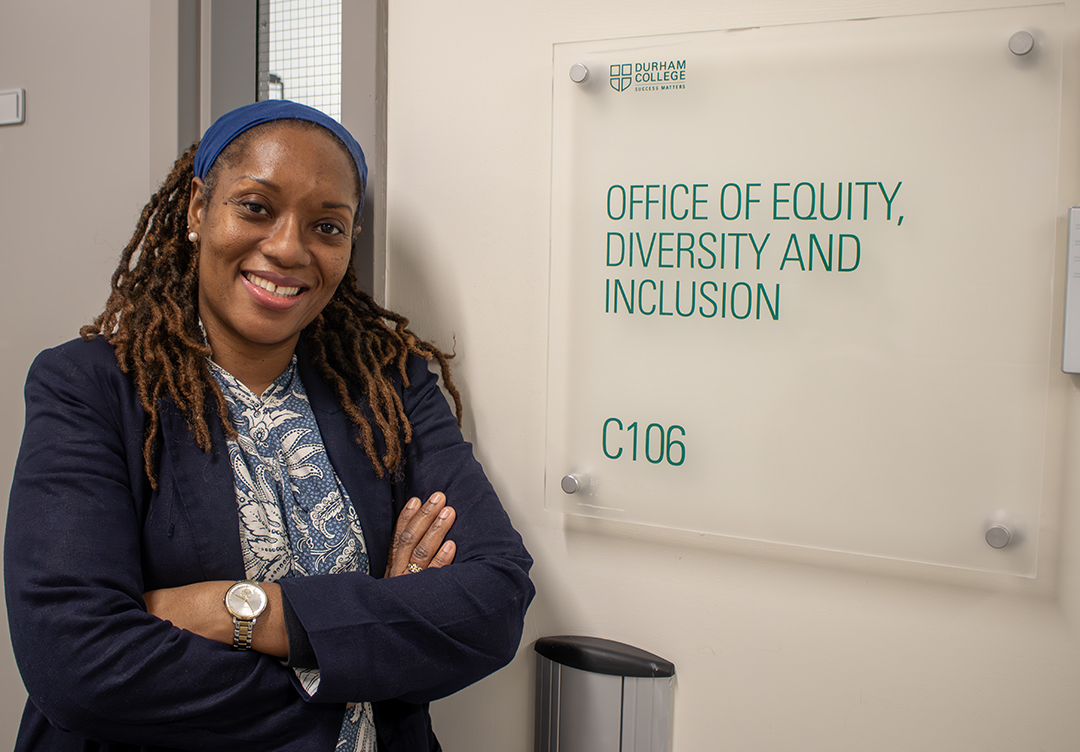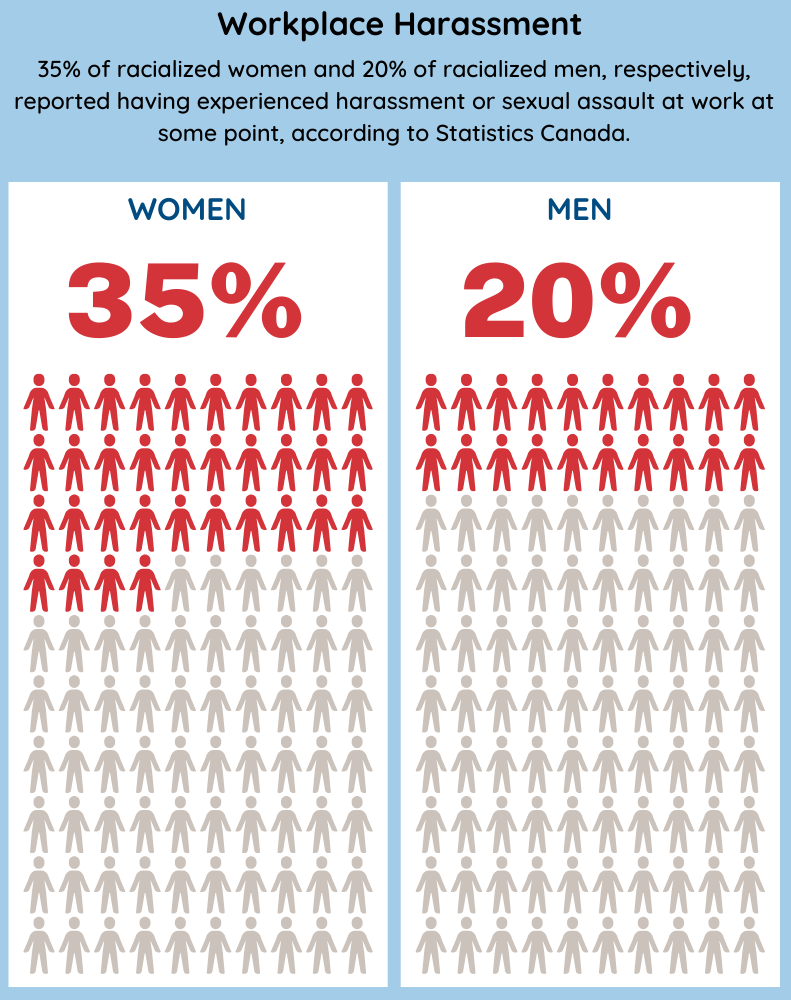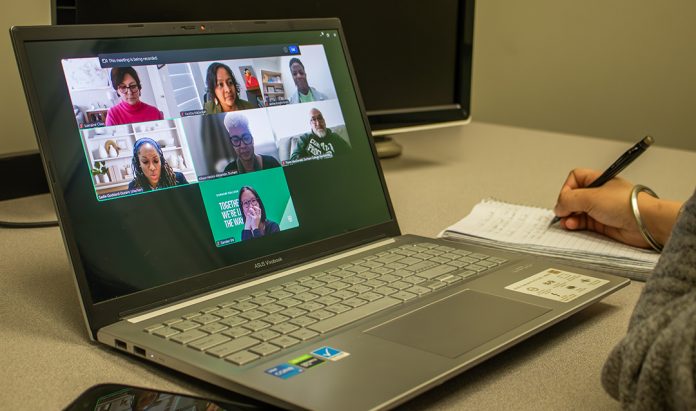Allyship is defined as individuals striving to end oppression by supporting and advocating for the oppressed, said Dr. Sadie Goddard-Durant, director of the Office of Equity, Diversity and Inclusion (EDI) at Durham College.
However, she explained that an accomplice goes further, using their power and privilege to challenge systemic barriers, often at personal risk.
As part of Social Justice Week, Durham College hosted a session on Jan. 21, titled “How to Be an Accomplice for Racialized Women in the Workplace.“

Moderated by Goddard-Durant, the event featured three panellists: Allison Hector-Alexander, an equity and inclusion specialist with over 20 years of experience and the founding director of Durham College’s EDI office; Janine Knight-Grofe, director of international education at Durham College with 17 years of experience in international education; and Kavitha Nadarajah, director of student systems, reporting and scheduling in the Office of the Registrar, who has more than 25 years of experience in the tech sector.
The discussion focused on systemic barriers racialized women face in professional settings and explored ways in which individuals can act as accomplices.
Goddard-Durant referenced a 2019 statement by Erskine and Bilimoria: “To be an accomplice for racialized women, ownership must be both anti-racist and feminist.”
Hector-Alexander emphasized the importance of action.
“The biggest thing that I look for in an accomplice is someone who is willing to get into trouble with me,” she said, adding that accomplices need to be self-aware and understand both the historical and present-day implications of oppression.
“Being an accomplice also means taking a risk,” Hector-Alexander said. “That is huge.”
Knight-Grofe highlighted the importance of active listening. “Listening with an open heart and asking considered questions going beyond the surface is key,” she said.
She also noted that amplifying the voices of racialized women is a crucial act of accompliceship.
The panel also addressed performative allyship, acknowledging that some individuals claim to be allies but are unwilling to take meaningful risks.
“When we talk about allyship and accompliceship, it’s not easy work—it’s hard work,” said Hector-Alexander. “Because we’re asking people to amplify our voices and take risks, so that willingness is really important.”
She warned against actions that centre the accomplice rather than those they aim to support.
“If you put on a cape and you’re flying in to save me, that is performative. Because I am not asking to be saved, I’m asking you to walk with me.”
Nadarajah added, “Somebody who says they are an ally but avoids difficult conversations or gets defensive when called out… those are warning flags.”
Panellists shared personal stories of how having accomplices helped their careers.
“Having an accomplice in leadership changed my life. That is how important having accomplices and allies is,” Hector-Alexander said.
She emphasized that true accomplices advocate when racialized women are not in the room.
“They’re the ones who will advocate on your behalf, validate your hard work and push for your recognition.”
Nadarajah shared a formative experience from 24 years ago. “A manager recommended my promotion when I was eight months pregnant… He told the committee that my performance had already demonstrated I was ready for the role and that pregnancy shouldn’t impact that decision. I found out about his advocacy much later and even after 25 years, I still remember.”
Knight-Grofe recounted a similar experience.
“Early in my career, I had an incredible accomplice who spoke my name in rooms I wasn’t in. At the time, I didn’t necessarily feel there was a difference because I was a racialized woman in the workplace, but after she retired, I realized all the barriers she had quietly been knocking down for me.”
Panellists also discussed ways organizations can nurture allyship and support those taking risks to be accomplices.
“We need more of these discussions to educate others and share experiences,” Nadarajah stressed. “Diverse teams help reduce unconscious bias.”
Hector-Alexander emphasized the importance of organizational culture.
“We need a culture where people feel they can speak up about exclusion and being dismissed in certain spaces.”
“Organizations need to articulate their values so that racialized staff know they have a place in the institutional culture and that there are accomplices and allies within the institution,” Knight-Grofe said.

In a separate interview, Goddard-Durant outlined the EDI office’s initiatives to support racialized women on campus, particularly Black women and other marginalized groups.
Goddard-Durant, who took up the role in April of 2023, said the EDI office works with Black students and employees to understand their experiences with anti-Black racism and identify their needs for programming and information.
“What do they want leadership to know for informed decision-making?” she said.
The office has focused on building trust and creating safe spaces for conversations, primarily through one-on-one and group sessions.
This February marks the beginning of Black History Month and the office is taking a more structured approach by hosting formal discussions with Black students and employees. These conversations will delve deeper into the intersection of race and gender, fostering meaningful dialogue and understanding.

Beyond campus, the EDI office has established relationships with community organizations that support Black women, Muslim women and South Asian women who experience barriers.
“We’re not the only service providers,” Goddard-Durant said. “So how can we collaborate? These organizations may have a much better understanding of the experiences than we do.”
Recognizing that students and employees have multi-faceted identities, the office has worked to connect them with community resources addressing financial challenges, mental health and other aspects of their lives.
Through the sexual violence prevention and education program, as well as EDI training, the office ensures that scenarios and examples used in workshops reflect the experiences of racialized women and other equity-deserving groups.
Another initiative involves conferences for Black high school students in collaboration with the Durham District Black Educators Network. The office also advocates for racialized women in areas such as childcare accessibility, financial aid and workplace advancement.
The EDI office continues to advocate for and support racialized women, not through a single program but through a range of intentional efforts.
“As the panellist said, ‘Walk alongside them to amplify whatever it is or to take the risk of whatever it is,'” Goddard-Durant said.




